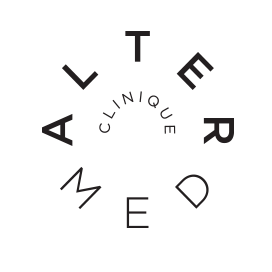Anahite Afshar

EAT HEALTHY:
"What foods should I avoid?"
This question, too often asked, implies that there are foods that are bad for your health and that, in order to "eat healthy," we should abolish them.
First of all, to understand the effect of food on health, we must understand what health is.
The WHO defines health as "a state of complete physical, mental and social well-being and not merely the absence of disease or infirmity. (1)
There is definitely a very important link between diet and overall health.
Diet and physical well-being
Diet plays a very important role in physical well-being. First of all, eating is necessary for survival. If you don't eat, you die. Without going to this extreme, we only have to think of the discomforts (gurgling, headache, lack of energy, ...) felt when we skip a meal to realize its importance.
Moreover, if we do not consume enough or if, on the contrary, we consume too much of certain nutrients, we can develop dietary deficiencies or toxicity, which results in a dysfunction of the body. An iron deficiency, for example, leads to iron deficiency anemia, while an excess of vitamin A leads to reduced bone mineral density, birth defects and liver abnormalities (2).
In addition, diet has an impact on long-term physical well-being. According to the WHO, poor nutrition is one of the main risk factors for a series of chronic diseases (cardiovascular disease, cancer, diabetes) as well as those related to obesity (3).
At the same time, a healthy diet helps prevent or treat various diseases. Adherence to the Mediterranean diet, for example, is associated with a significant improvement in health, with a significant reduction in mortality due to cardiovascular disease, cancer incidence or mortality, and incidence of Parkinson's disease and Alzheimer's disease, as well as mortality in general (4).
On the other hand, when physical health deteriorates, very often appetite also tends to deteriorate.
As Obelix said, "when appetite goes, everything goes"!
Diet and mental well-being
Food also has an effect on mental well-being.
One need only think of the irritability felt when one is very hungry. In urban English, a new term has even been coined to describe this state. It is the word "hangry", an amalgam of the words "hungry" and "angry" (5).
In fact, several studies point to links between food and changes in the brain's "happy" neurotransmitters (6).
Some studies, for example, suggest that a good intake of omega-3 is associated with a reduction in depressive symptoms (7). In addition, vitamin D deficiency is associated with poorer mood and cognitive performance (8). This partly explains the seasonal depression of the winter months.
On the other hand, loss of appetite is a common symptom of depression (9).
Food and social well-being
Eating is not only about our basic needs. Eating is also a social act.
Cooking is an important part of our culture. We often gather around a meal or a buffet during festivities.
Moreover, depending on the social context, we are more or less likely to eat if we are alone, in front of the TV, with friends or with strangers (10). The social aspect affects our eating in many ways. Living and eating alone, for example, reduces the quantity and quality of food eaten by older people (11).
In addition, an unfortunate feature of eating disorders is the isolation of sufferers (12).
Food thus affects all facets of health.
However, one food, consumed alone, has little impact on overall health. To categorize a food as unhealthy, it must directly affect physical and/or mental and/or social health. Unless there is a food allergy or intolerance, no food has such power.
Of course, some foods are less nutritious than others. However, even if they bring us little benefit on our physical well-being, they are not automatically dangerous, they are even sometimes beneficial on our social and mental well-being.
In reality, it is the dosage that makes the poison.
Let's take the example of salt. Table salt is made of sodium chloride, which is chlorine and sodium. Sodium is a mineral present in the blood and has an essential role in the proper functioning of the body. It allows for muscle contraction, transmits information between the brain and the rest of the body in the form of electrical impulses or nerve impulses, and directs the inflow and outflow of water from cells in partnership with potassium. Excess sodium contributes to high blood pressure. In Quebec, largely due to the food industry, the average consumption is more than twice the requirement (13), and most people would benefit from reducing their intake. However, sodium deficiency leads to hypotension, nervous system impairment, dehydration, muscle cramps and deterioration of renal function (14). Sodium should therefore be consumed in moderation.
Conversely, no single food is essential for health and no single food guarantees health.
In summary, there are no good or bad foods for health, there are foods of high nutritional value and others of lower nutritional value. There are no foods to really avoid, but there are foods to eat daily and others to enjoy more occasionally. It is the overall balance that is important.
So what is healthy eating?
It's about adopting good eating habits, enjoying a variety of foods with pleasure, without guilt, in good company and with respect for your body.
Anahite Afshar, Dt.P., M.Sc.
References
1. Preamble to the Constitution of the World Health Organization, as adopted by the International Health Conference, New York, June 19-July 22, 1946; signed on July 22, 1946, by the representatives of 61 States. (Official Records of the World Health Organization, No. 2, p. 100) and entered into force on April 7, 1948.
2. Institute of Medicine of the National Academies. Dietary Reference Intakes for Vitamin A, Vitamin K, Arsenic, Boron, Chromium, Copper, Iodine, Iron, Manganese, Molybdenum, Nickel, Silicon, Vanadium, and Zinc. National Academies Press, Washington, DC. 2006.
3. WHO: http://www.who.int/topics/diet/fr/
4. Sofi F et al (2008). Adherence to Mediterranean diet and health status: meta-analysis. BMJ. BMJ. 337: a1344. doi:10.1136/bmj.a1344
5. http://www.urbandictionary.com/define.php?term=Hangry
6. Fallon S, ShearmanE, Sershen H, Lajtha A. (2007). Food reward-induced neurotransmitter changes in cognitive brain regions. Neurochemical Research (32) 1772- 1782.
7. Giles GE et al. (2013). Omega-3 fatty acids influence mood in healthy and depressed individuals. Nutrition Reviews.71(11):727-741. doi:10.1111/nure.12066
8. Wilkins HC et al (2006). Vitamin D Deficiency Is Associated With Low Mood and Worse Cognitive Performance in Older Adults). Am J Geriatr Psychiatry 14:12
9. Mental Illness Foundation: mental-illness.html#Symptoms
10. Hetherington MM et al. (2006). Situational effects on meal intake: A comparison of eating alone and eating with others. Physiology & Behavior. 88(4-5) 498-505.
11. Hughes G et al (2004). Old and alone: barriers to healthy eating in older men living on their own. Appetite. 43 (3) 269-276.
12. Aneb: https://anebquebec.com/troubles-alimentaires
13. Institut national de santé publique du Québec. Blanchet C., Plante C. and Rochette L. (2009). Food consumption and nutritional intakes of Quebec adults. Retrieved from https://www.inspq.qc.ca/pdf/publications/931_RapportNutritionAdultes.pdf
14. Extenso: http://www.extenso.org/article/sodium/


